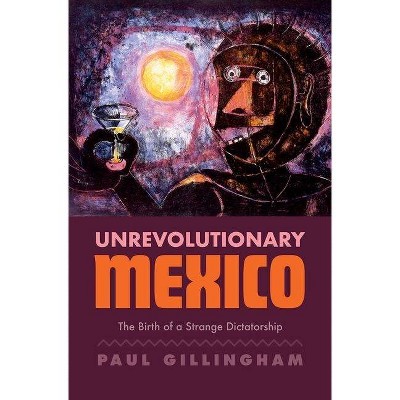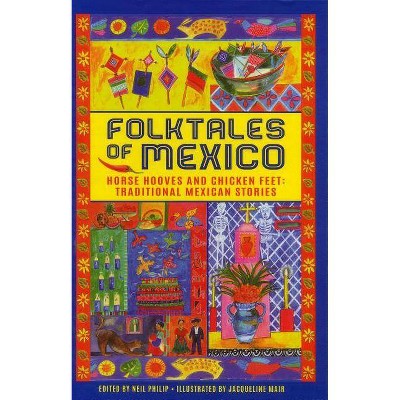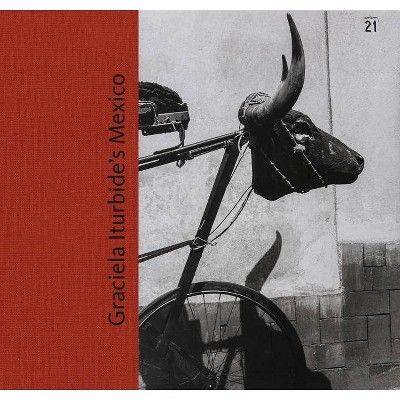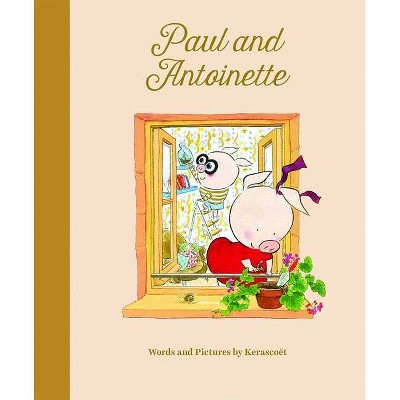Unrevolutionary Mexico - by Paul Gillingham (Hardcover)

Similar Products
Products of same category from the store
AllProduct info
<p/><br></br><p><b> About the Book </b></p></br></br>An essential history of how the Mexican Revolution gave way to a unique one-party state<p/><br></br><p><b> Book Synopsis </b></p></br></br><b>An essential history of how the Mexican Revolution gave way to a unique one-party state</b> <p/> In this book Paul Gillingham addresses how the Mexican Revolution (1910-1940) gave way to a capitalist dictatorship of exceptional resilience, where a single party ruled for seventy-one years. Yet while soldiers seized power across the rest of Latin America, in Mexico it was civilians who formed governments, moving punctiliously in and out of office through uninterrupted elections. <p/> Drawing on two decades of archival research, Gillingham uses the political and social evolution of the states of Guerrero and Veracruz as starting points to explore this unique authoritarian state that thrived not despite but because of its contradictions. Mexico during the pivotal decades of the mid-twentieth century is revealed as a place where soldiers prevented military rule, a single party lost its own rigged elections, corruption fostered legitimacy, violence was despised but decisive, and a potentially suffocating propaganda coexisted with a critical press and a disbelieving public.<p/><br></br><p><b> Review Quotes </b></p></br></br><br>"This is the best history I know about how Mexican politics, national and provincial, changed from 'revolutionary' to 'unrevolutionary' between 1940 and 1958. The research is solid and deep. The details are rich. The writing is lively and pungent. I recommend the book most highly to all seriously interested in the Mexico that gave way to Mexico now."--John Womack Jr, author of <i>Zapata and the Mexican Revolution</i> <p/> "Displaying sharp insight and meticulous original research, <i>Unrevolutionary Mexico</i> traces Mexico's crucial transition from popular revolution to the distinct and durable regime of the PRI. Richly detailed and readable, the book expertly explores grassroots violence, bossism, graft and electoral shenanigans. To read it is to be present in the creation of a unique political system that set its indelible stamp on modern Mexico."--Alan Knight, author of <i>The Mexican Revolution</i> <br> <p/>"Gillingham's multi-regional approach masterfully teases out the roots of Mexico's post-revolutionary 'soft' dictatorship (<i>dictablanda</i>), analyzing its complex blend of authoritarian and democratic practices in two contrasting provincial states, Veracruz and Guerrero, as it lurched toward greater political stability, civilian rule, and economic development during the pivotal 1945-55 decade."--Heather Fowler-Salamini, author of <i>Women Workers, Entrepreneurs and the Mexican Revolution: The Coffee Culture of Córdoba, Veracruz</i> <p/>"This is the best account of the peak and decline of the PRI, Mexico's long-ruling, purportedly revolutionary party. <i>Unrevolutionary Mexico</i> reveals that Mexico's democratic transition began with surprisingly competitive elections in the 1940s. At the same time, it shows how the economic Mexican Miracle was based in part on the exploitation of peasants via fixed rents and labor drafts. This is required and quite enjoyable reading for modern Mexicanists."--Ben Fallaw, author of <i>Religion and State Formation in Postrevolutionary Mexico</i> <p/><br><p/><br></br><p><b> About the Author </b></p></br></br><b>Paul Gillingham</b> is professor of history at Northwestern University. His book <i>Cuauhtémoc's Bones: Forging National Identity in Modern Mexico</i> won the Conference on Latin American History's Mexican History Book Prize.
Price History
Price Archive shows prices from various stores, lets you see history and find the cheapest. There is no actual sale on the website. For all support, inquiry and suggestion messages communication@pricearchive.us




















